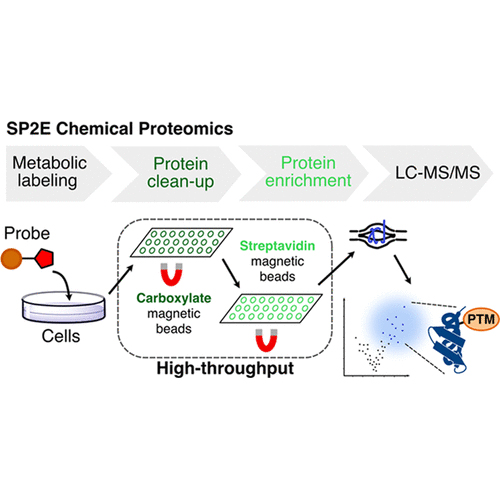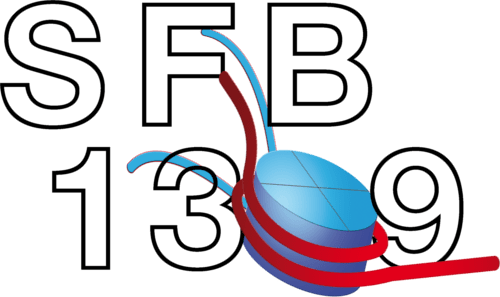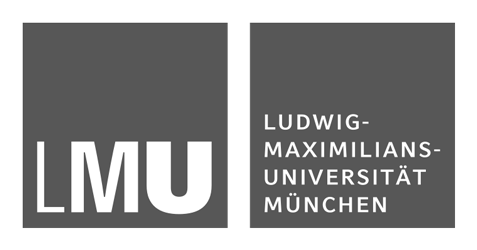Transforming Chemical Proteomics Enrichment into a High-Throughput Method Using an SP2E Workflow
2022-06-30
Tobias Becker, Andreas Wiest, András Telek, Daniel Bejko, Anja Hoffmann-Röder, Pavel Kielkowski
JACS Au, 2022, 2, 7, 1712–1723
Protein post-translational modifications (PTMs) play a critical role in the regulation of protein catalytic activity, localization, and protein–protein interactions. Attachment of PTMs onto proteins significantly diversifies their structure and function, resulting in proteoforms. However, the sole identification of post-translationally modified proteins, which are often cell type and disease-specific, is still a highly challenging task. Substoichiometric amounts and modifications of low abundant proteins necessitate the purification or enrichment of the modified proteins. Although the introduction of mass spectrometry-based chemical proteomic strategies has enabled the screening of protein PTMs with increased throughput, sample preparation remains highly time-consuming and tedious. Here, we report an optimized workflow for the enrichment of PTM proteins in a 96-well plate format, which could be extended to robotic automation. This platform allows us to significantly lower the input of total protein, which opens up the opportunity to screen specialized and difficult-to-culture cell lines in a high-throughput manner. The presented SP2E protocol is robust and time- and cost-effective, as well as suitable for large-scale screening of proteoforms. The application of the SP2E protocol will thus enable the characterization of proteoforms in various processes such as neurodevelopment, neurodegeneration, and cancer. This may contribute to an overall acceleration of the recently launched Human Proteoform Project.








